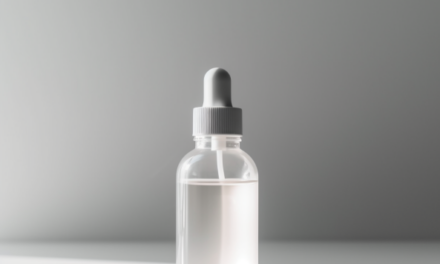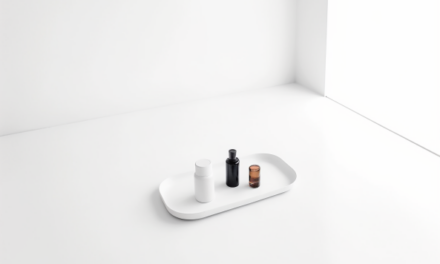The Aging Face: the Brutal Truth About Skincare Limitations
Skincare is, as the name suggests, about caring for our skin. Yet, many skincare products tantalizingly promise us the fountain of youth, or at the very least, a face that defies time. However, there’s a reality we should be aware of: our facial appearance is influenced by not only our skin but also by our bones, muscles, and fat. These components morph and evolve as we age. While a quality skincare routine can indeed help decelerate skin aging, it’s essential to recognize its limitations in combating changes in other facial aspects. Let’s take a closer look at what really happens as our faces age.

Changes that age our faces
Aside from skin, various other aspects of our faces undergo significant alterations with age. These include:
Bones
As we age, the shape of our facial bones evolves – some dimensions expand while others contract. Our faces generally become wider, shorter, and deeper, leading to more prominent eye sockets and darker circles under the eyes. The upper jaw diminishes, accentuating smile lines and contributing to wrinkles around the mouth. Also, areas of the jawbone linked to chewing muscles roughen, while others soften.
Fat
Aging faces often lose volume in certain areas like the forehead, cheeks, and around the mouth, while retaining fat in others such as under the chin, around the nose, lips, and jowls. This change is less about overall facial fat loss and more about a shift in its distribution.
Our facial fat is structured in separate compartments, held in place by muscles and other tissue. In youth, these compartments provide volume to our faces, contributing to a youthful appearance. As we age, these fat pockets rearrange and become more distinct, creating a less even look on an older face.
Muscles
Aging also affects our facial muscles, resulting in lengthening, increased tone, and reduced movement range. These changes can lead to a tightened appearance, limited facial expressions, and a shift in fat that emphasizes skin creases. Over time, dynamic facial lines become permanent wrinkles.
The limitations of skincare
In essence, a significant portion of age-related facial changes occurs beneath the skin, in the bones, muscles, and fat. These deeper, so-called “mimic wrinkles” form primarily due to these changes; the skin merely reflects them.
The skin, however, does play a vital role in aging. The more elastic and firm it is, the more it can counteract the aging changes in fat and muscle. Moreover, addressing its own wrinkles and pigmentation can help us look more youthful. But let’s face the truth: even with the best skincare products and daily sunscreen application, topical skincare alone can’t freeze our faces in time.
Embracing change
This might sound slightly disheartening, recognizing that inevitable change is a part of life. Our facial evolution is largely out of our control, aside from maintaining a healthy lifestyle, daily sun protection and good nutrition. Of course, surgical interventions offer an alternative, though not without their risks.
Yet, there’s a different perspective to consider. If we are fortunate to live long enough, our faces naturally transform over time, much like a child’s face matures into an adult’s. Beauty companies often promote the notion of erasing wrinkles, maintaining baby-like cheeks, and striving for a mythical youthful glow. But should we buy into this idea, or embrace our evolving natural beauty? The choice, ultimately, is ours.
As for products that pledge to rejuvenate or restore elasticity, treat these promises with a dose of skepticism. They can enhance collagen and hydration, improving skin elasticity to some extent. However, they can’t completely eradicate sagging skin or dramatically restore skin firmness. Instead of investing in an array of potions, concentrate on overall health, daily sun protection, and good nutrition.
Choose your products based on actives
WIMJ Search allows you to select skincare products based on what’s inside. Filter products by actives included, and exclude ingredients you don’t want. Check the concentration of ingredients and potential irritants.
Sources
- The Anatomy of the Aging Face: A Review https://www.thieme-connect.com/products/ejournals/html/10.1055/s-0036-1582234
- Anatomy of the Facial Fat Compartments and their Relevance in Aesthetic Surgery https://onlinelibrary.wiley.com/doi/abs/10.1111/ddg.13737
Related Articles
Winter Skin Care: Navigating the Chilly Season with Healthy Skin
Let’s dive into understanding winter skin and how to best care for it.
When Buying Skincare, What Are You Really Paying For?
Ever wondered what’s behind the price tag of your skincare product? Are you just forking out for fancy ingredients and chic packaging? The reality may surprise you. Let’s break it down and see where your money really goes.
The Dark Side of Lightweight Sunscreens
Do lightweight sunscreens provide enough sun protection? Lightweight sunscreen formulas have a higher risk of not providing the sun protection they promise. Learn more in this article.
Can You Use Retinoids for Rosacea-Prone Skin?
If you’ve been grappling with the frustrating skin condition called rosacea, you may have been advised to steer clear of retinoids. This advice typically stems from concerns that retinoids can further irritate your already inflamed skin. But here’s something that may surprise you: retinoids, in fact, are commonly used in rosacea medical treatments.
Opting for Fragrance-Free Skincare: A Skin-Friendly Choice
Opting for Fragrance-Free Skincare: A Skin-Friendly ChoiceIs the smell of your skincare products hurting your skin? It's a question we often don't think about. Yes, the scents can be nice, but they can also cause problems. About one in three skin issues from cosmetics...
What Does Sensitive Skin Mean and How to Help It?
Discover what sensitive skin truly means. We break down the causes, symptoms, and potential triggers of sensitive skin, and share simple steps to manage and reduce skin sensitivity effectively.
Do Collagen Supplements Work for Skin?
In recent years, collagen supplements have gained popularity for reducing signs of skin aging and improving skin health. But do they actually work? In this post, we will discuss the evidence from randomized, double-blind, and controlled trials that have evaluated oral supplementation with hydrolyzed collagen for improving skin hydration, reducing wrinkles, and improving elasticity.
Can Topical Skincare Improve Skin Elasticity?
Discover the truth about skin elasticity and the effectiveness of topical skincare treatments. Learn about the key components that give our skin its elasticity, why skincare can help to an extent, and the best strategies to protect your skin’s natural firmness
Do You Really Need Custom-Made Skincare?
Custom-made skincare products have become a talking point recently. But are they an essential innovation in skincare or simply a captivating marketing gimmick? This blog post delves into whether personalized skincare truly offers advanced scientific solutions tailored to our unique needs or is it luring us into paying more for seemingly “perfect” products.
Is Skincare A Scam?
Is Skincare a Scam? "Is skincare a scam?", you might wonder after spending $$$ on products that don't work. Or better put, "does the beauty industry turn skincare into a scam?". In many ways, yes - unfortunately. As consumers, we crave innovation, seeking skincare...
Do I Need Sunscreen for Indirect Sunlight?
How often have you heard that sunscreen is key for protecting our skin from the sun? A lot, right? But, does this same rule apply when you’re in indirect sunlight, in the shade or on a cloudy winter day? The answer is yes. Here’s the explanation.
The Ultimate Guide to Sunscreens And Sun Protection
“Understanding why sunscreen is important in skincare is essential for maintaining youthful, healthy skin. Scientists have found that a staggering 80% of externally-caused skin aging is a result of sun damage. The effects? A variety of skincare woes such as pigmentation problems, scarring, and enlarged pores as we age. So, whether you’re dealing with anti-aging, acne, or pigmentation concerns, sunscreen is an irreplaceable part of your skincare routine. And remember, it’s vital for all skin tones – yes, even the darkest ones.”
The Ultimate Guide to Skin Cleansing
Daily skin cleansing is an essential part of skincare, but do we truly understand why we cleanse our skin and how it works? How often should we wash our skin? Let’s dive deep into the world of skin cleansing and clarify the typically overlooked basics.
How to Choose A Good Moisturizer?
Choosing the right moisturizer for your skin can be a daunting task. The market is awash with countless products, each promising to hydrate, protect, and nourish your skin. So, how do you make an informed choice? Let’s break down the evidence behind effects of moisturizers, debunk marketing myths, and learn how to choose the best moisturizer for your skin.
How Many Steps Do You Really Need for A Good Skincare Routine?
What Steps Do You Really Need for A Good Skincare Routine?Taking care of your skin is more than just a beauty routine - it’s an important part of maintaining overall health. But skincare can be overwhelming, with so many products and steps to choose from. While there...
Products for Melanated Skin: An Essential Guide to Choosing the Right Skincare
You can choose better care products for melanin-rich skin if you understand your skin tone needs better. If you have melanated skin – or, in other words, a naturally dark skin tone – it’s essential to have a more gentle skincare approach and a stronger focus on avoiding skin trauma, irritation, and inflammation. Let’s delve into the nitty-gritty of caring for melanated skin.
Skin Types: Should You Bother?
Skin Types: Should You Bother?If you are into skincare, you must have heard about skin types. They are everywhere in the skincare world: on products ("for oily", "dry skin"), on various online quizzes ("find out your skin type") and in articles in beauty magazines....
How to Start Anti-Aging Skincare?
In this post, we’ll dive into the science behind skin aging and explore the different factors that can impact our skin’s health. We’ll also discuss some of the best skincare strategies to help you start your anti-aging journey and keep your skin looking its best.
Vitamin C (Ascorbic Acid) for Anti-aging
Ascorbic acid, also known as vitamin C, is a powerful anti-aging ingredient that has been extensively researched for its skin benefits. It can help reduce fine lines and wrinkles, fight other signs of photodamage, and reduce hyperpigmentation when used correctly.
Peptides for Anti-Aging
Peptides are a confusing active in skincare. On one hand, we have research that shows that they can work and deliver impressive skin results. On the other hand, there are hundred of different peptide ingredients in skincare products, and some of them can do little more than a simple moisturizer. Read on to learn about the difference.
Niacinamide for Anti-Aging
Anti-AgingNiacinamideVitamin B3. In concentrations from 2%, Niacinamide helps the skin to produce its own antioxidants that in turn fight photo-damage. Niacinamide rarely caused irritation. Most people can use it once or twice daily. Niacinamide can be included in a...
Retinoids for Anti-Aging
Retinoids are the most well-research skincare actives for anti-aging. Learn what they are and how to use them effectively in a routine.
WIMJ Skincare System
5 simple principles for real results




